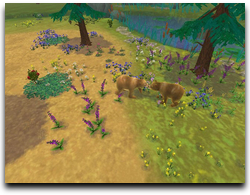This week’s episode is very late thanks to Jonah having to prep for E3, which much of the podcast focuses on. There’s even a massive argument between Jonah and TJ about which film was better: Tron or Tron: Legacy, while Tron 2.0 gets its love as well. This week’s Gaming Flashback is Microsoft’s most popular JRPG, Blue Dragon.
The news items include:
- Capcom registers Devil May Cry 5 site, fueling E3 2018 rumors
- Ubisoft confirms E3 reveal of Assassin’s Creed Odyssey
- Rumor: Microsoft to reveal three Gears of War games at E3
- Rumor: Rocksteady to announce a Superman game at E3
What do you expect from E3? Let us know.

 Electronic Arts has announced SimAnimals, a game where you play the godlike hand and control the lifestyle of over 60 animals. In the game you’ll play the role of a disembodied hand which moves around and life animals, pick flowers and interact with the environment much like a past Lionhead Studios game: Black and White.
Electronic Arts has announced SimAnimals, a game where you play the godlike hand and control the lifestyle of over 60 animals. In the game you’ll play the role of a disembodied hand which moves around and life animals, pick flowers and interact with the environment much like a past Lionhead Studios game: Black and White.